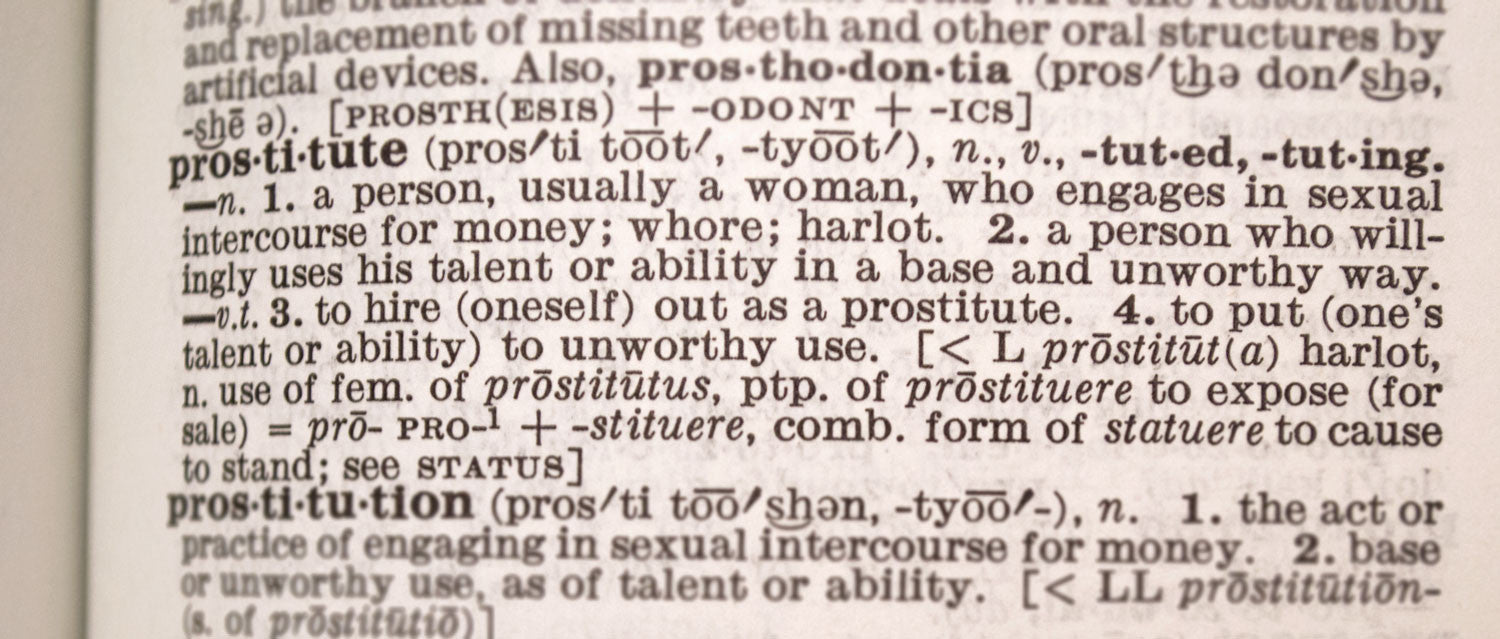Your Cart is Empty

Written by a survivor of human trafficking
There are few things more powerful than language.
It connects us, allows us to express emotions to one another, gives us the ability to work as a team. It defines our culture and communities. With it we empower, inspire and encourage others. With it we choose what we like and what we don’t. We tell our families and the ones we care for how much we love them.
It is so important that it’s use is protected by the very first amendment to the constitution.

But as much as language can be used for good, improper use of language can cause much harm. A few harsh words can leave a person feeling rejected and unloved, can cause rifts in community, and have even broken peace and resulted in war.
One of the worst things we have done with language is used it to label people and separate them from ourselves, separating ourselves from their problems, separating ourselves from their humanness. Labels such as homeless, addict, criminal, prostitute.

It is time for us in the anti-trafficking movement to look at the words we use and understand how they are shaping society's perception on this complex issue. She was never aprostitute, and she is not anex-prostitute. What a harsh label to put on a woman who has become a victim of the crime of human trafficking. With this label we look past her as a victim, we look past her potential, and mostly we just look past her. With this word we look at her circumstances, past or present, and define her by what has happened to her, and what she has done. With this word, we blame her for the vulnerabilities that made her susceptible to force, fraud and coercion.

Let’s change the conversation, and start recognizing that each person is human and has a story to tell. She is a survivor of human trafficking who was prostituted. It is something that happened to her and does not define who she is. It’s not a decision she made for herself or a lifestyle that she choose. When we change the way we speak, we are honoring the survivors we stand side by side with, and we are offering new survivors the chance to break the invisible chains of self-shame and self-condemnation.
When we drop the labels, we drop our judgment, and we make a straight path out for those to come.
This blog was part of the Breaking Misconceptions Blog Series. To learn more check out the rest of the series.
Why Getting Out of the Sex Trade Wasn't the Hardest Part
"You don't look like a survivor..."
The 5 Worst Things to Say to a Survivor
So well said!!!!
Comments will be approved before showing up.
Amanda Hardy
February 01, 2017
Thank you for posting this!